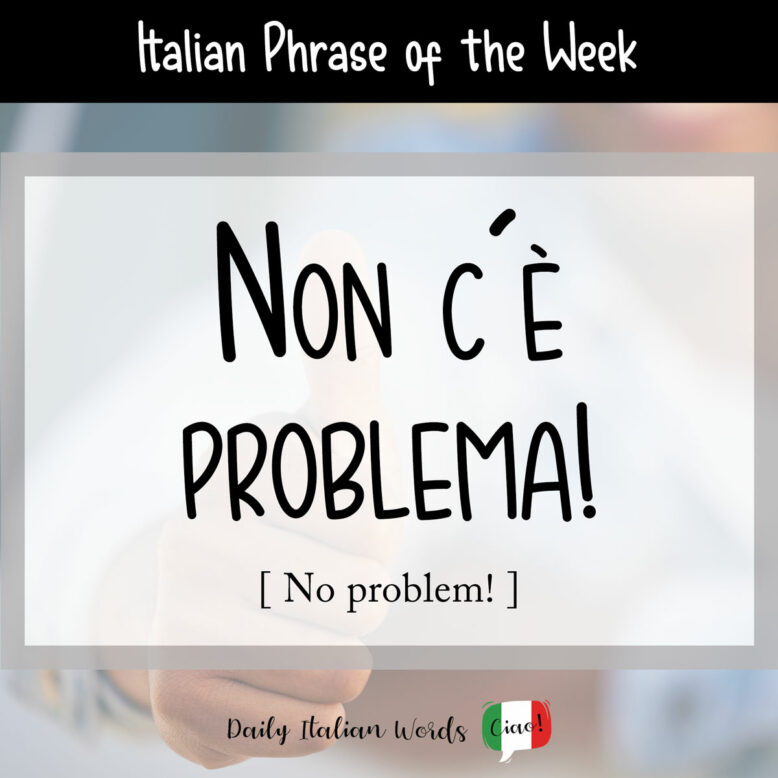If someone thanks you for a favour you’ve done, or apologises for a mistake they’ve made, there is one easygoing response that covers all the bases: Non c’è problema! (No problem!). It literally translates as there isn’t a problem.

Caspita, ho dimenticato il regalo per Anna… – Non c’è problema. Lo prendiamo al ritorno.
Darn, I forgot Anna’s present… – No problem. We’ll get it on our way back.
An alternative to non c’è problema is nessun problema, with nessun meaning no or none. The two expressions are perfectly interchangeable.
Grazie per avermi accompagnato a casa. – Nessun problema. È stato un piacere.
Thanks for taking me home. – No problem. It was a pleasure.
If you eventually tire of saying non c’è problema all the time and wish to expand your arsenal of phrases, take a look at the expressions below. They all express more or less the same sentiment!
- Non ti preoccupare. / Non preoccuparti. = Don’t worry.
- Non fa niente. = It’s fine. It doesn’t matter.
- Vai tranquillo/a! = Don’t worry about it!
- Non importa. = It doesn’t matter.
- (Ma) figurati. = No problem.
Somewhat amusingly, many Italians have started using the English expression no problem in informal contexts, so if you forget any of the aforementioned phrases, you can safely default to the English equivalent.

Heather Broster is a graduate with honours in linguistics from the University of Western Ontario. She is an aspiring polyglot, proficient in English and Italian, as well as Japanese, Welsh, and French to varying degrees of fluency. Originally from Toronto, Heather has resided in various countries, notably Italy for a period of six years. Her primary focus lies in the fields of language acquisition, education, and bilingual instruction.


